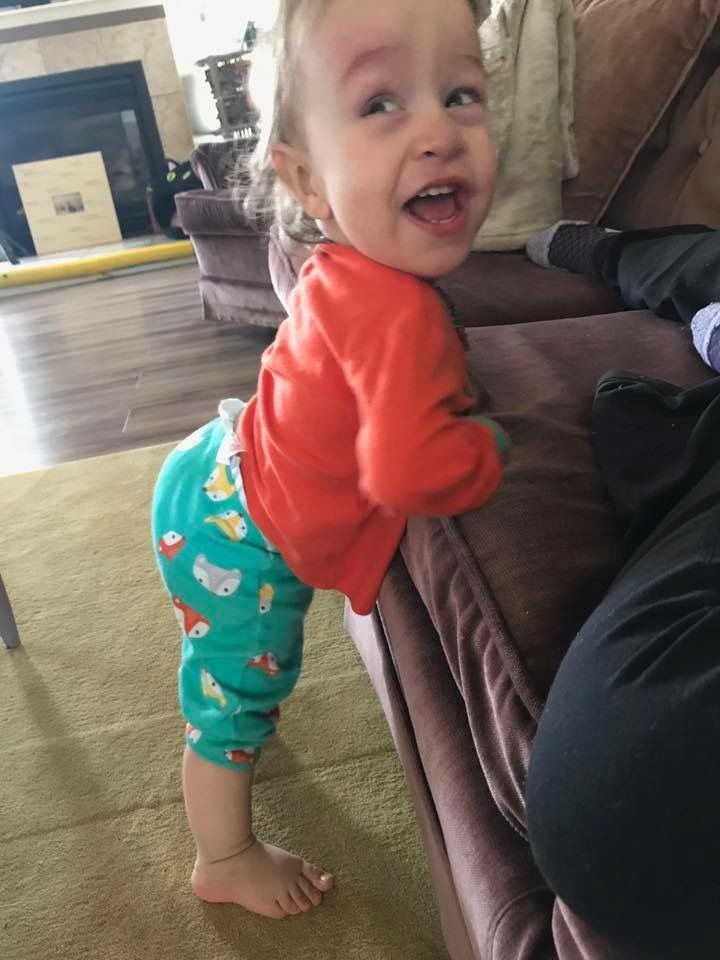Canada should anticipate a resurgence of a potentially deadly childhood respiratory virus as COVID-19 physical distancing measures are relaxed, according to a new report.

Respiratory syncytial virus (RSV) is very common, quite contagious and infects the respiratory tract of pretty much all children before their second birthday.
For most kids, the symptoms mimic that of a common cold — but the virus can be deadly for anyone with a weak immune system.
For some, RSV can lead to bronchiolitis — which is an inflammation of the lungs — or even pneumonia, according to the U.S. Centers for Disease Control and Prevention.
The chance of severe infection is greatest for babies born prematurely, kids under two born with heart or lung disease and kids with weakened immune systems.
“The problem is babies that have complex medical conditions — so heart and lung conditions — but other special medical needs as well can be at really high risk,” said Dr. Pascal Lavoie, one of the authors of the report published Monday in the Canadian Medical Association Journal.
The report says for many months, Canada has seen virtually no cases of RSV infection. Thanks to masking, distancing and hand-washing, Canada recorded just 239 cases of RSV during the pandemic, compared with nearly 19,000 in 2019.
That means many pregnant women and infants have had less exposure, and therefore, pediatric immunity levels may be low.
“Every kid has passed (their) first year of life without any contact with RSV,” said Dr. Daniel Garros, a pediatric intensivist at the Stollery Children’s Hospital in Edmonton.
“If the mothers didn’t have contact with RSV, they didn’t develop the immunity,” he said.
“They didn’t have the immunity to pass on in the breast milk, so what happens? These babies will be more susceptible, and there will be more babies with RSV.”
With public health measures relaxing around the world, some countries are seeing a spike. Australia and the United States have seen a resurgence of RSV cases that parallels the decrease in COVID-19 physical distancing measures, the report said.
It’s also not a one-and-done disease: kids can get it several times in their lifetime.

Get weekly health news
“We know that immunity to these viruses is short-lived, so having not been exposed to these viruses for a year, we think that antibodies may have decreased among the general population,” Lavoie said.
The report authors said Canada should also anticipate a similar resurgence this summer, which could stretch resources in pediatric intensive care units across Canada.
“The U.S. has started to see a resurgence of RSV in the summer, which is very unusual,” Lavoie said.
“We just want physicians to be prepared to look out for this virus because we’re not used to seeing this virus in the summer.”
Symptoms to pay attention to include: trouble breathing, a cough producing yellow, green or grey mucus, being unusually upset or inactive and signs of dehydration, such as a lack of tears when crying or little to no urine in the diaper.
No vaccine exists for RSV, although research has been underway for many years.
News the virus could make a resurgence worries Edmonton mom Corinna Heppner.
Her five-year-old son Rossy Hipkin was born with severe scoliosis and Arthrogryposis Multiplex Congenita (AMC), a rare neuromuscular disorder that can greatly reduce mobility in the joints and muscles.

The disorder affects almost every part of Rossy’s body, including weakening his heart and lungs — organs particularly susceptible to RSV.
In fact, Rossy had RSV when he was one and was hospitalized for a week. That’s why his mom is so scared.
“It’s terrifying. I don’t even want to think about what would happen if he were to get something like that (again),” Heppner said.
She said in any given year, the family worried about cold and flu season as is.
“Last year ended up actually being one of our more healthier years because there were masks, there were all these precautions.
Heppner said 2020 was one of the most normal years they’ve ever experienced, as the family already operated inside a bubble: “Now everybody was in the same boat, so the pandemic was actually kind of easy for us.”
“So for this year, now that we have nothing, this means that we have to be even more careful than we already are.”
“We’ve avoided the hospital for quite some time now, and I’m really hoping we can continue to do that,” Heppner added.
RSV is the leading cause of hospitalization of infants worldwide and in Canada, according to University of Alberta virologist David Marchant.
Garros said only about four per cent of children with RSV need hospitalization, and of those, 10 per cent need intensive care.
That said, the pediatric ICU at the Stollery is considering administering preventive antibody treatments for high-risk babies earlier than usual this year and warns families to be careful.
Garros said if anyone in a home with a baby develops cold-like symptoms this summer, they should treat it similar to COVID-19: wear a mask, distance themselves from other household members, don’t send their kids to school where they could infect immunocompromised kids like Rossy and practise good hygiene.
“The RSV is transmitted by droplets, but it’s also transmitted by contact, so we have to be very diligent in washing our hands.”
— With files from Su-Ling Goh and Caley Ramsay, Global News










Comments
Want to discuss? Please read our Commenting Policy first.